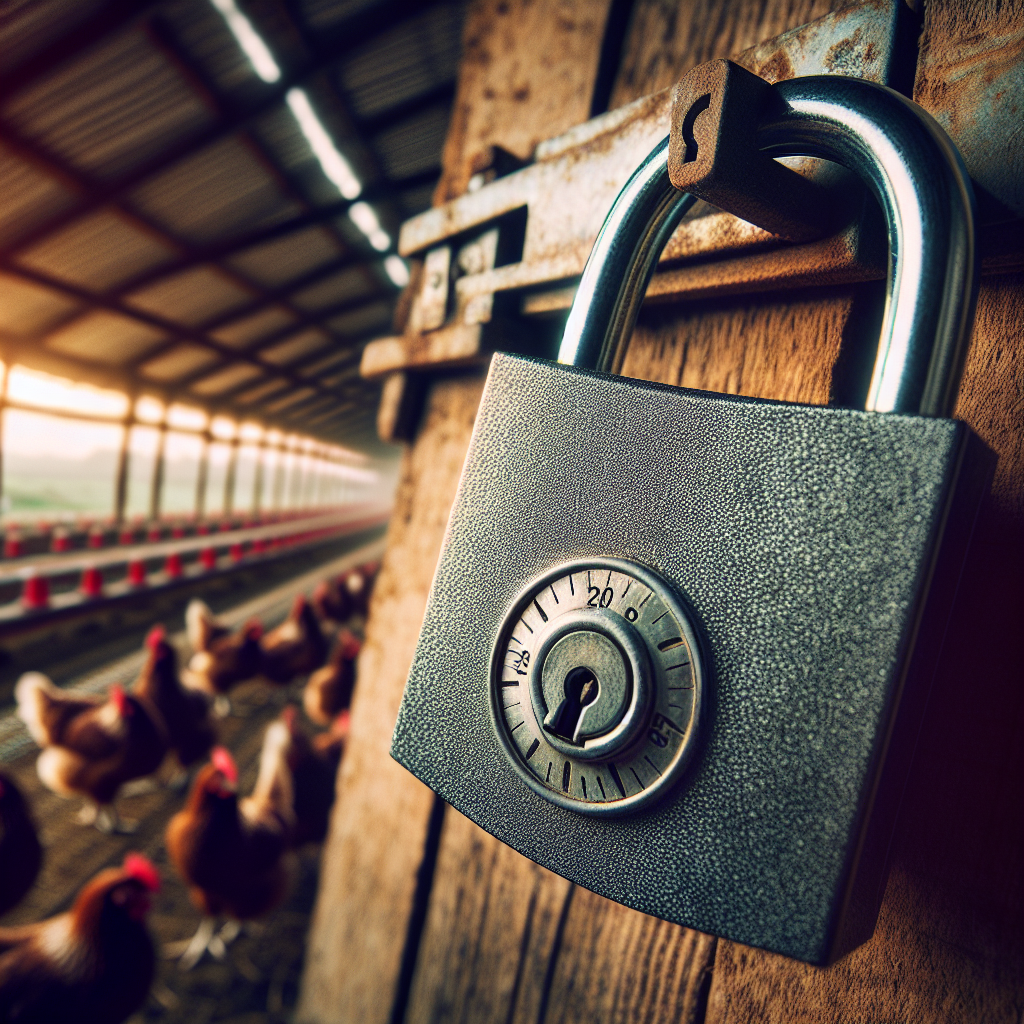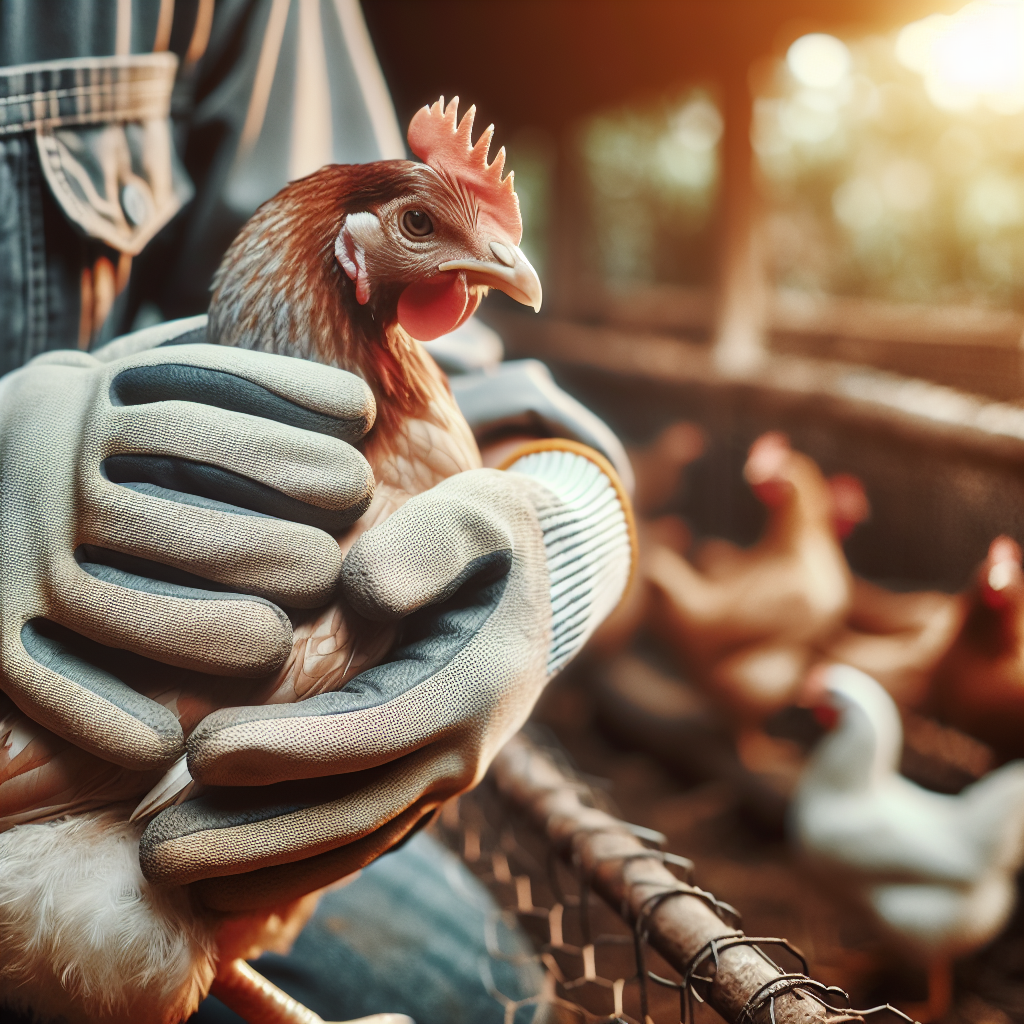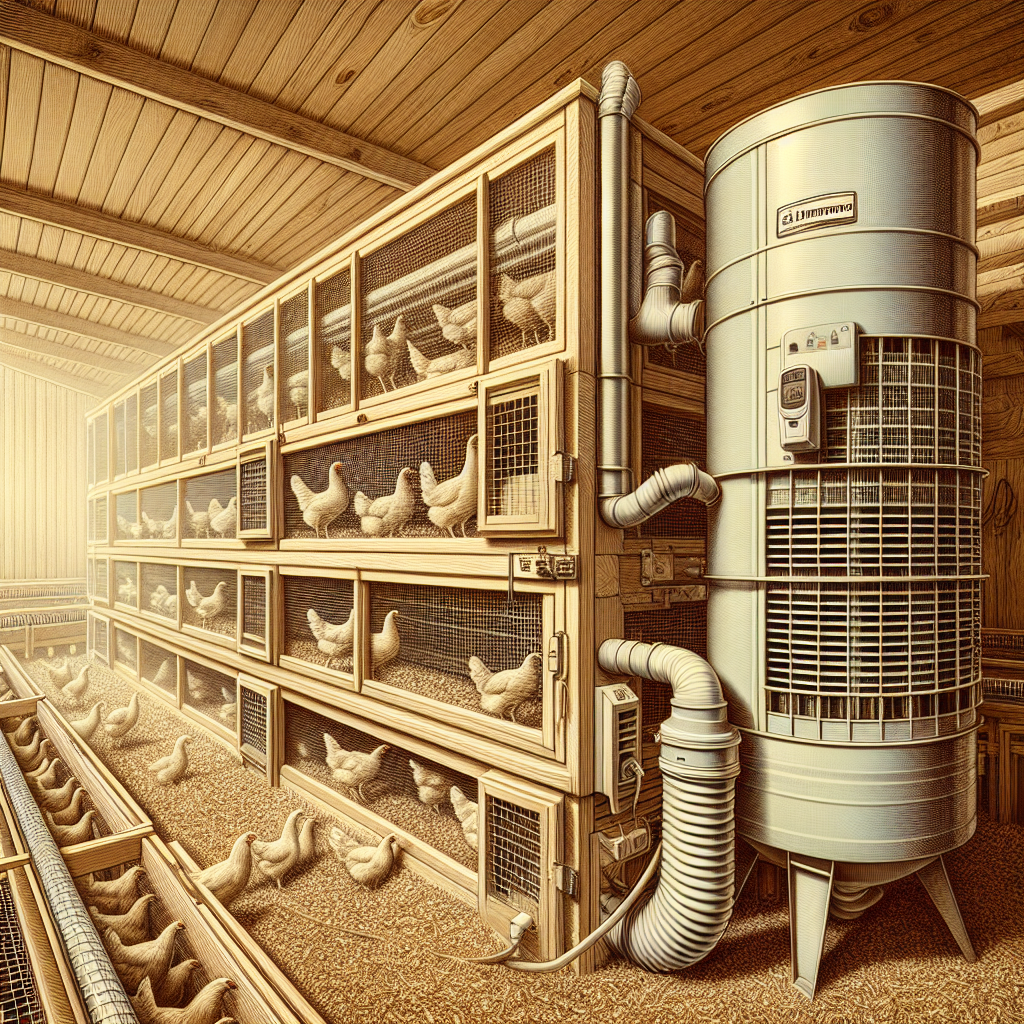Maintaining the safety of your chicken coop is an essential part of keeping your feathered friends happy and healthy. But with so many potential hazards lurking around every corner, where should you focus your attention? In this article, we’ll explore the top safety checks that should be included in your regular coop maintenance routines. From inspecting the structure for any potential weak spots to ensuring proper ventilation and security measures are in place, we’ll cover all the necessary steps to provide a safe and secure environment for your beloved chickens. So grab your tool belt and let’s get started!
Structural Integrity
Regular inspection of the structural integrity of your chicken coop is essential to ensure the safety and well-being of your feathered friends. This includes examining the roof and walls, doors and windows, flooring, and ventilation systems.
Roof and Walls
Inspect the roof for any signs of damage or leaks. Look for loose or missing shingles, cracks, or sagging areas that may indicate structural weakness. Make sure there are no gaps or holes in the walls that could potentially allow predators or harsh weather elements to enter the coop.
Doors and Windows
Check the condition of all doors and windows, ensuring they are in good working order. Make sure doors securely close and latch, with no gaps that could be used as entry points by predators. Windows should be intact, without any cracks or holes that may compromise the coop’s security.
Flooring
Examine the flooring for any signs of deterioration or weakness. Rotting or damaged flooring can pose a hazard to your chickens, causing injury or creating an entry point for pests. Consider reinforcing or replacing any compromised flooring to maintain a secure and comfortable environment for your flock.
Ventilation
Proper ventilation is crucial to prevent the buildup of harmful gases, excess humidity, and ammonia in the coop. Regularly check the ventilation openings to ensure they are unobstructed, allowing for adequate airflow. Consider installing additional ventilation if needed to maintain optimal air quality and temperature inside the coop.
Predator Protection
Protecting your chickens from predators is of utmost importance in maintaining the safety of your coop.
Fencing and Gates
Inspect the fencing surrounding your coop, ensuring it is tall enough and in good condition to deter predators from entering. Check for any gaps or weak spots that could be exploited by crafty predators. Ensure gates are secure with latches that are difficult for predators to manipulate.
Latches and Locks
Regularly check the latches and locks on doors and windows to ensure they are in proper working condition. Replace any broken or loose latches immediately to prevent unauthorized entry.
Wire Mesh
Inspect the wire mesh used for windows, vents, and fencing. Look for any holes or gaps that could allow small predators to enter. Repair or replace damaged wire mesh promptly to maintain a secure environment for your chickens.
Nesting Boxes
If your coop includes nesting boxes, regularly inspect them for signs of damage or wear. Ensure they are securely attached to prevent collapse or unauthorized access by predators. Provide proper bedding to create a safe and comfortable environment for your hens’ egg-laying activities.
Electrical Safety
Proper electrical safety measures are crucial when it comes to maintaining a safe environment in your chicken coop.
Lighting and Wiring
Regularly inspect the lighting and wiring systems within the coop. Check for any exposed or frayed wires that could pose a fire hazard. Replace any damaged wiring promptly and ensure all connections are secure.
Extension Cords and Outlets
If you use extension cords in your coop, inspect them regularly for signs of damage or wear. Replace any cords with exposed wires or frayed insulation. Ensure that outlets are properly positioned and protected to prevent water or moisture damage.
Heating Devices
If you use heating devices in your coop during colder months, regularly inspect them for any signs of damage or malfunction. Ensure they are positioned safely and kept away from combustible materials. Consider using thermostatically controlled heaters to prevent overheating or fire hazards.
Fire Prevention
Implement fire prevention measures in and around your coop. Keep flammable materials, such as hay or wood shavings, away from potential heat sources. Regularly clean the coop to remove any excess dust or debris that could potentially ignite.
Fire Safety
Fire safety precautions are essential for ensuring the well-being of your chickens and the security of your coop.
Smoke Alarms
Install smoke alarms in your coop to alert you to any potential fire hazards. Check and test them regularly to ensure they are in working order. Replace batteries as needed, and make sure the alarms are loud enough to be heard from outside the coop.
Fire Extinguishers
Keep fire extinguishers readily accessible near the coop. Ensure they are charged and inspected regularly. Familiarize yourself with their proper use and instruct others on how to operate them safely.
Escape Routes
Establish clear escape routes for you and your chickens in case of a fire. Ensure that doors and windows can be easily opened from the inside and are not obstructed. Practice evacuation drills to familiarize yourself and your flock with the procedure.
Eliminating Flammable Materials
Regularly remove any flammable materials, such as dry vegetation or oily rags, from the vicinity of the coop. Store these items in a secure location away from potential ignition sources. Keep the area clear to minimize the risk of fire spreading to your coop.
Sanitation and Hygiene
Maintaining proper sanitation and hygiene practices in your chicken coop is essential for the health and well-being of your flock.
Cleaning and Disinfection
Regularly clean and disinfect the coop to prevent the buildup of bacteria and parasites. Remove soiled bedding, droppings, and any other debris. Scrub surfaces with a mild detergent before applying an appropriate disinfectant. Allow ample time for the coop to dry before reintroducing your chickens.
Waste Management
Implement a proper waste management system in your coop. Ensure that droppings and soiled bedding are promptly removed and disposed of in a designated area or compost bin. Regularly monitor and address any potential odor issues to maintain a clean and hygienic environment.
Pest Control
Take proactive measures to control and prevent pest infestations in your coop. Keep the area surrounding the coop free from standing water or food scraps that may attract pests. Use appropriate pest control methods, such as traps or repellents, to deter unwanted critters from entering.
Water Supply
Regularly check and clean water containers or automatic watering systems to ensure a clean and reliable water supply for your chickens. Provide fresh, clean water daily and monitor water quality to prevent the spread of diseases.
Feeding and Watering Systems
Proper feeding and watering systems are vital for meeting the nutritional needs of your flock and ensuring their overall well-being.
Feed Storage and Handling
Store chicken feed in secure containers to prevent access by pests or rodents. Regularly inspect the storage area for signs of infestation and address any issues promptly. Follow proper handling guidelines to maintain the freshness and quality of the feed.
Food and Water Quality
Regularly monitor the quality of the feed and water provided to your chickens. Ensure that feed is free from mold or contaminants and that water is clean and free from debris. Replace feed and water containers as needed to maintain optimal hygiene.
Automatic Systems
Consider using automatic feeding and watering systems to ensure a consistent supply of food and water. Regularly inspect these systems to ensure they are functioning correctly and free from any blockages or malfunctions.
Leak Prevention
Regularly check for any leaks in the feeding or watering systems. Ensure that containers or pipes are properly secured and free from cracks or holes. Address any leaks promptly to prevent water damage and maintain a steady water supply.
Roosting Areas
Creating comfortable and secure roosting areas is essential for the health and well-being of your chickens.
Perches and Roosting Poles
Regularly inspect the perches and roosting poles in your coop. Ensure they are sturdy and securely fastened to prevent collapse. Consider providing different sizes and heights to accommodate your chickens’ preferences.
Nest Boxes and Bedding
Regularly clean and disinfect the nest boxes to maintain hygiene and minimize the risk of infestations. Provide clean bedding material, such as straw or wood shavings, to create a cozy and comfortable nesting environment for your hens.
Securing Droppings Boards
Regularly clean and secure droppings boards beneath the roosting areas. Remove any accumulated droppings to prevent overcrowding and maintain a clean and healthy living space for your chickens.
Roof Insulation
Consider insulating the roof of your coop to regulate temperature and control moisture buildup. Insulation helps maintain a comfortable environment for your flock and can minimize the risk of respiratory issues caused by extreme temperatures.
Ventilation and Temperature Control
Ensuring proper ventilation and temperature control is crucial for the overall health and comfort of your chickens.
Airflow and Ventilation Openings
Regularly check the airflow and ventilation openings in your coop. Clear any obstructions, such as debris or bedding, that may impede proper airflow. Monitor the temperature inside the coop during different seasons and adjust ventilation accordingly.
Clearing Obstructions
Regularly clean and clear any obstructions from ventilation openings, such as windows or vents. Remove debris, dust, or cobwebs that can hinder airflow and compromise the air quality inside the coop.
Insulation and Draft Prevention
Insulate your coop to minimize temperature fluctuations and drafts. Inspect insulation regularly to ensure it is intact and in good condition. Fill any gaps or holes that may allow cold air or drafts to enter the coop.
Heating and Cooling Options
Consider using heating or cooling devices to regulate temperature extremes in your coop. Ensure these devices are properly installed, safely positioned, and regularly maintained. Monitor the temperature carefully to prevent overheating or chilling of your chickens.
Emergency Preparedness
Being prepared for emergencies is essential to ensure the safety and well-being of your chickens.
First Aid Kit
Keep a well-stocked first aid kit specifically designed for chickens. Include supplies such as bandages, wound disinfectant, and medications recommended by a veterinarian. Regularly check and replenish the kit to ensure it is fully equipped in case of an emergency.
Emergency Contact Information
Keep a list of emergency contact information, including the phone numbers of a veterinarian and local authorities. Display this information prominently near the coop and ensure that all family members and caregivers are aware of its location and importance.
Evacuation Plan
Develop an evacuation plan in case of emergencies such as fires or natural disasters. Identify safe meeting points and designate responsibilities for each family member or caregiver. Practice evacuation drills with your chickens to familiarize them with the procedures and reduce stress during emergencies.
Transport Cages
Have transport cages readily available in case you need to evacuate your chickens quickly. Ensure these cages are clean and in good condition. Practice using them to ensure a smooth and efficient evacuation process.
Biosecurity Measures
Implementing proper biosecurity measures helps protect your chickens from diseases and potential health threats.
Restricting Access to Coop
Control access to your coop by limiting visitors and ensuring only authorized individuals, such as family members or caretakers, enter the premises. Minimizing direct contact with outsiders reduces the risk of introducing diseases or contaminants to your flock.
Quarantine Procedures
Implement a quarantine period for any new additions to your flock. Isolate new chickens in a separate area for a designated time to monitor their health and prevent the spread of potential diseases. Consult with a veterinarian for guidance on quarantine procedures.
Biosecurity Signage
Display biosecurity signage near the coop to remind visitors and family members of the importance of proper hygiene and disease prevention. Include instructions on handwashing, restricted access, and other biosecurity measures to help reduce the risk of disease transmission.
Regular Health Checks
Schedule regular health checks for your chickens with a qualified veterinarian. Monitor their overall well-being, watch for any signs of illness, and promptly address any health issues that arise. Early detection and treatment can help prevent the spread of diseases within your flock.
By incorporating these safety checks into your regular coop maintenance routines, you can help ensure the safety, comfort, and well-being of your chickens. Remember, a well-maintained coop not only protects your flock from potential hazards but also provides them with a cozy and secure home to thrive in.




